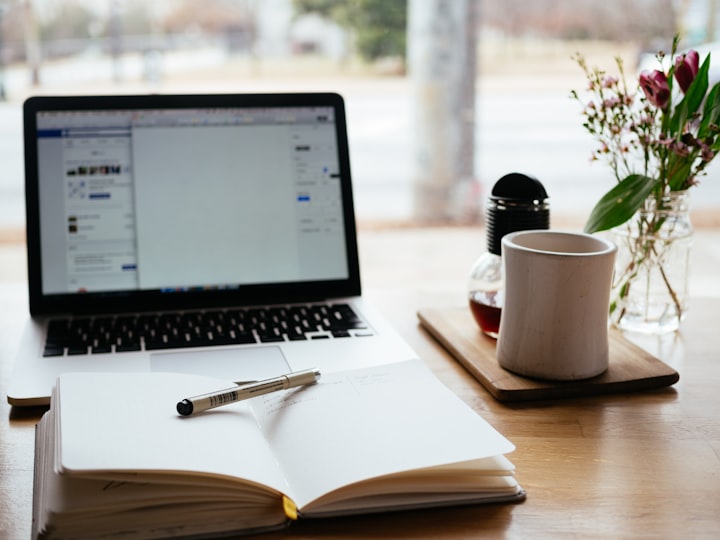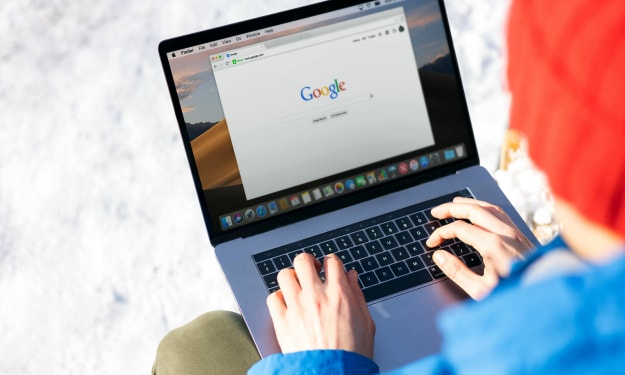How To Study When You Can't Remember Anything You Read
Studying is so much more than memorization.

Straight A's from elementary to grad school
Long story short, I did well in school. Scholarships, awards, the accolades…that was me. From pop quizzes to mid-terms to final exams, in my life, I excelled at thousands of them, passing with flying colours. It didn't matter which subject it was (Maths, Biology, History, Chemistry, English etc). I used a similar approach to studying and it worked every time.
I'm a Millennial and when I was growing up, the school system was designed for people who could retain information like a robot.
Read and regurgitate.
Input and output.
Rinse and repeat.
I realized at a young age that I didn't learn by reading. I was the square peg entering a system of round holes. Along with looking different (being one of few Asian kids in a predominately Caucasian school), eating different food, and speaking a different language, there were many things I had to do differently and that included how I learned and studied.
So throughout my school years, I created my own tactics to study, learning in a way that worked well for me. However, there was a time I felt inadequate and went against what I knew about myself.
Highlighting entire pages
I started university in 2004. I was a Science major studying to attain a degree in Biomedical Physiology and Kinesiology; however, for some reason, I decided to take an archaeology course. You know, to expand my horizons as a young adult.
This was the first time I had ever been assigned specific textbook pages to read called 'readings'. These were to be completed before a lecture so that I could better understand what the professor was talking about.
I was shocked but also a bit scared. I was no longer the big fish in the small cesspool that was high school. I was at University. This was different. There was a woman in her 30s sitting beside me, a couple of dudes with grey hair and people who looked super smart in my class. They brought their own laptops, multi-coloured planners and sticky notes to school.
I thought to myself,
"Maybe I need to change the way I learn now. This is how grown-ups study."
So that night, I procrastinated until the wee hours to get that reading done. I had to re-read sentences and paragraphs to understand what was going on. My mind wandered down so many rabbit holes, I kept forgetting what I had just read. When I finally read all 30 pages, I asked myself what I could remember and my mind was blank.
Then I grabbed a highlighter I had never used and started reading again. This time, when I was done, entire pages were drenched in yellow ink, glaring at me, taunting,
"Everything is important, stupid."
The next day at the lecture, I still couldn't remember anything I read the night before. So I concluded at that moment that I will not do a single reading for the rest of my academic career. And I stood by that statement and still do.
How did I study for all the courses without doing a single reading? But first, let's get crystal clear about what studying actually is.
Is studying basically memorizing?
If that were true, I would have dropped out of school a very long time ago.
Memorizing is one of the tools in the learning process but it's not the only way studying can be approached. The difference between memorizing a single fact and understanding a concept is that one has no meaning and the other does.
Do you remember the exact dates and years of all the battles that happened in World War II?
Or do you understand the significance of each battle, how the outcomes of each affected the state of the countries that were involved and how those moments shaped the socio-economic landscapes of the world today?
Which question seems more interesting to answer?
Which answer would be easier to remember?
Which question has only one correct answer?
Which question is open for interpretation?
I cannot remember the dates and years of all the significant events in history; however, I can explain how one thing influenced another.
Here are the strategies that I used to thrive through the decades of my academic career, not just as a student but as a tutor for high school kids, a piano teacher, a teaching assistant (TA) at University, a change management leader, an online self-improvement course instructor, and a mom of 2 kids.
Focus on the right information
I didn't do a single reading in University but I did read the lecture notes. Usually, these were PowerPoint slides with 4–5 bullet points on each which was the right amount of information that I could digest. I need information presented to me in bite-sized portions, not entire chapters or even pages.
I barely read my expensive and heavy textbooks all throughout my school years. And to be honest, I don't think I needed to buy most of them. There were a few that had practice questions, diagrams and graphs that were useful in my studying. Many times, when I'd return them to the bookstore through the "buy back" program, they were in pristine condition, no corner folded, not a single highlighter mark.
Don't take notes like a mad person
For me, I learn best by watching and listening carefully. When I'm writing, I'm focused on writing. I suck at multi-tasking so when I'm writing, I'm not listening. I can't hear what the instructor is talking about.
And then by the time I've finished writing a sentence, I would have missed important things (like what will be on the exam) that were discussed; my mind would race around, spending time trying to catch up instead of listening intently to what was being talked about at the moment.
When I'd listen carefully during the lecture the first time around instead of writing, it became easier to remember when it came down to studying.
Do the practice tests and re-do homework assignments
My brain retains knowledge when it's being asked like a search engine. Oftentimes, the teacher would give us optional practice tests or assignments to complete. And I can't count the number of times those questions actually showed up on the exam. It's an even bigger clue if the instructor doesn't give answers to the practice questions; it's probably because they're planning to include it on the test.
Not so secret secret: teachers don't actually want their students to fail.
This was incredibly important for the courses where calculations were being tested like Physics, Calculus, Stats etc. The practice helped me understand not what to calculate but why and how. The trick is to identify what type of numbers need to be used and for what purpose and then to put them into the proper equation to get the result.
Reverse engineer your own exam
And if the teacher didn't give out practice questions, then I would make my own. Rather than rote memorizing every single word in my notes, I would take a chunk of information and break it down into a few questions that could be asked about it.
I would create questions that were similar to the questions that the instructor would have on their exams.
For instance:
Define the term 'X'
Fill in the blanks
Name 5 points that contributed to 'X'
Choose the best answer (multiple choice)
Questions that start with why, what, how, when, where and who?
When I reverse engineered the information into test questions, it put me in the position of the examiner, seeing what information would be most prudent to include in an exam.
Teach it to someone
As the 'smart kid', my friends and classmates would often ask me for help. Instead of brushing them off and getting competitive, I would go through the questions on the phone and explain how and why I got the answer. During the conversation, I saw it as an opportunity to see if I really understood the material.
This is the ultimate test when the student becomes the master. If you can teach someone something, you haven't just memorized a few facts, you've learned a concept and applied it in a dynamic situation; any test would be a piece of cake.
Pretend to give a lecture on the topic
During grad school and the last year of undergrad, I started to work on my presentation skills on my own (not just because I was told to). I knew it would be something I needed to have in my toolkit as I was going to be working in the corporate environment after graduation and needing to speak in front of committees, boards, councils, working groups etc.
So as part of my studying regimen, I would pretend to be the professor, standing in my sweats in the living room, greasy hair bun, and give a lecture without reading the notes. I'd glance at the slide on my screen and start talking to an imaginary classroom.
Bottom line: Learning is an active process
I wish I could retain information in my brain like downloading an app on my phone. However, I'm a human being and I can't just passively absorb knowledge by staring at a book or pressing a button to open a screen.
I learn by doing and applying the information to an activity where I can practice it again and again. Then through repetition, I'm able to understand the information and learn it without having to memorize it.
So Readers, what has helped you learn and study? Which tactics have you tried?
This was originally published on my website on January 12, 2021.
About the Creator
Katharine Chan
Sum (心, ♡) on Sleeve | Author. Speaker. Wife. Mom of 2 | Embrace Culture. Love Yourself. Improve Relationships | Empowering you to talk about your feelings despite growing up in a culture that hid them | sumonsleeve.com/books






Comments
Katharine Chan is not accepting comments at the moment
Want to show your support? Send them a one-off tip.